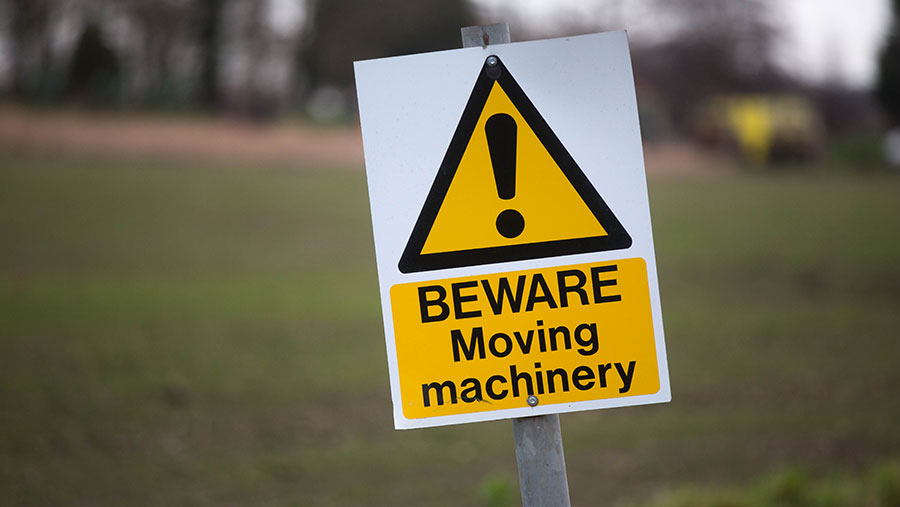FW Opinion: No shortcuts on road to better farm safety
 © Tim Scrivener
© Tim Scrivener Constant pain. Inability to work. Poorer mental health and family relationships.
This is the reality of the aftermath of the worst farm accidents, the scale of which is revealed this week by Farmers Weekly’s exclusive survey about attitudes to risk at work and the consequences.
See also: FW Opinion: Want to achieve net zero? Show us the money
The initiative is the start of a year-long campaign that will raise awareness of how to minimise avoidable accidents on farm.
Called Dying to Feed You, it will tell the stories of those who saw their lives changed by farm accidents, but lived to tell the tale.
One in five farmworkers have had a workplace accident within the past year, and 60% of respondents say they sometimes take unnecessary risks.
We can debate why this happens. Some feel the financial pressures they are under are forcing them to cut corners.
For others, it is a calculated risk that has been taken so many times before without consequence that it is easy to forget what is at stake.
What I hope we can all agree on is that these unnecessary risks have to end.
We have to bring down our industry’s unacceptable accident rate.
We must all do our bit to maximise the chance that everyone who works on a farm goes home unscathed to their families each evening.
This means looking at familiar jobs in a new light to see where danger lurks and what can be done about it.
Everyone has their story of a near miss or two. Mine involve cutting corners while bedding down cattle, almost getting trapped by a latching pick-up hitch and turning the quad bike too sharply at speed.
All of these were situations I didn’t need to be in. I was stupid but got away with it, when far better farmers than me have done less and did not.
NFU deputy president Stuart Roberts, who announced this week that he will not be seeking another term in office, has been a tireless campaigner on these issues during his time in post.
The words from his resignation letter bear repeating here: “Despite huge efforts, we are yet to see the fundamental culture shift needed to prevent the catastrophic injuries and loss of life we see every week in our industry.”
“There are no shortcuts: we must redouble our efforts if we are to make impactful, long-term change.”
He is absolutely right and, like all campaigners in this sector, deserves our thanks for continuing to strive even when it can feel like few people are listening.
If you have suffered a life-changing accident while at work and would like to tell your story as part of this campaign to help promote safety, please email andrew.meredith@markallengroup.com.
Road to achieving net zero
The great gathering of world leaders in Glasgow for COP26 will begin in just a few days, where consensus may or may not be forged on new targets to limit environmental emissions across the world.
Farmers have rightly been upset by the tone of much of this debate when it focuses on agriculture.
However, as our latest Transition supplement this week shows, the road to net zero can be paved with many actions that make economic as well as environmental sense.
At a time when fuel and machinery prices are close to all-time highs, it seems the height of good sense to do as Transition Farmer Eddie Andrew has and review whether costs and emissions can be reduced through further collaboration in this area.

